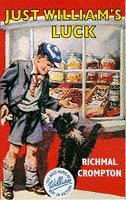Hunger

The recent sectarian killings in Northern Ireland reminded us all not only of the relative period of peace that has been enjoyed there recently but the brutal period of violence that came before it. It also showed up starkly the difference between violence and the political process, two themes which become enmeshed together in Steve McQueen's fêted, brutal and ultimately disappointing film about the hunger strike that killed Bobby Sands.
It is a story I have a dim awareness of, with no detail, having been a far from politically aware six year-old at the time. A few sentences at the beginning set the scene, with political prisoners denied their political status and the men inside the Maze prison on a 'blanket' and 'no-wash' protest. Apart from an obligatory epilogue at the end and the now infamous 'the scene' (including a 17 minute single take, static shot) in which Sands exchanges quick fire dialogue with a priest, that is it as far as a factual analysis goes. The rest is more of a mood piece, showing through imagery and sound (or more often the lack of it) what it is to be a prisoner at that time, in that place.
In fact for the first half of the film it focuses more on what it was to be on the other side of the prison door. Stuart Graham's guard checks under his car before leaving for work, his wife watching nervously as he starts the engine and when he arrives we see that his knuckles carry the marks of recent violence. We watch the detachment with which he and others go about their tasks. The violence when it comes is brutal, loud and horrible.
Then we have 'the scene'. And for me it was a relief to have some script and some acting. When McQueen made clear that he wanted to shoot a long single take Michael Fassbender and Liam Cunningham apparently got a bit worried and spent every spare moment rehearsing. The opening exchanges are almost too slick, too rehearsed, but Enda Walsh's script fizzes with import and both actors make a fine job of it. Why McQueen chooses to back-light them so that all but the outlines of their profiles are in darkness is a mystery. When he moves the camera around to their faces, and more importantly their eyes, you really start to get your money's worth but this is only in the final few minutes.
After that we go back to the art-installation film-making and the slow deterioration of Sand's body through emaciation to death. It is of course unpleasant to watch, hugely effective in portraying the lonely journey he undertakes and provides the film with one of those sombre endings which can leave an audience filing silently out of the auditorium. So why disappointing? Because it isn't really a film. Well, of course it's a film, and films can be arty (and art can be filmy) with very little dialogue and still say plenty but, and my wife pointed this out, the potential pitfall of an artist making a film like this is that it all looks too pretty. The poster above makes art out of starvation, the faeces smeared on the cell walls looks more like the considered work of someone like Chris Ofilli than the abnegation of personal dignity in order to protest. The pale lighting and white sheets which serve to accentuate the bedsores and blood-loss of Sands are in danger of beatifying those final scenes and that doesn't tell us anything. I can see why a film-maker would choose to minimise the politics and focus on the human reality of the situation, but with what ends up feeling like a narrow view I'm no closer to understanding why those men were there, both guards and prisoners, than I was as a child.












